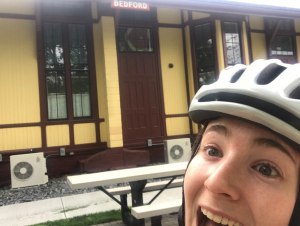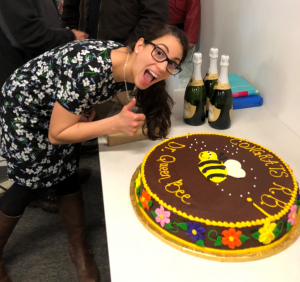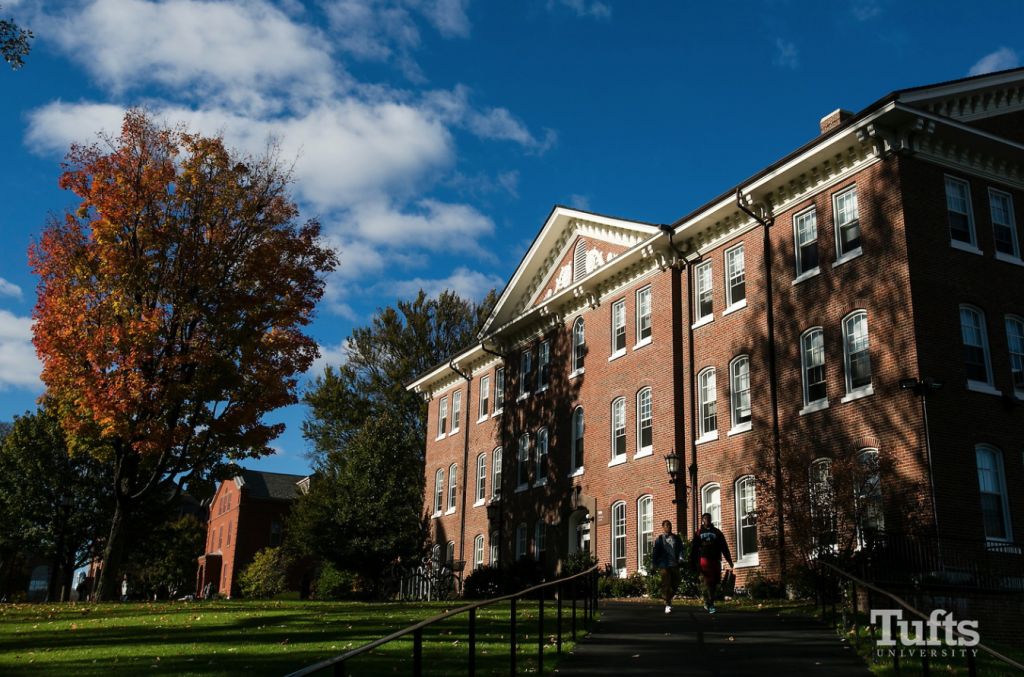Written by Ruaidhri Crofton, History & Museum Studies M.A. 2020
Anyone who as ever worked on an application, whether for a job, school, or scholarship, knows the mixed feelings that come along with it. On the one hand, you are excited to put your best foot forward and show the people who are reviewing your application the awesome person you are. On the other hand, there is the nervousness that comes with putting yourself in what may seem like a vulnerable position. Will they like me? Am I what they are looking for? How will I ever manage to get everything I need to do done for this application? For those who are considering applying to a graduate program at Tufts, or anywhere else for that matter, here are a few tips and tricks I found useful when completing my applications.
1. Map out the application requirements
Unlike applying for undergraduate programs where useful tools like the Common Application serve to guide you through a seemingly endless number of questions, requirements, and deadlines, applications for graduate programs mostly stand on their own. As a result, you will likely find yourself having to make separate application accounts for each of the schools to which you are applying and contending with a variety of different requirements that can quickly become difficult to keep track of. To stay on top of applications and deadlines, I found it helpful to make a list of each program I was applying to, the application deadline, and the various steps I needed to complete before I could submit it (completing writing samples, letters of recommendation, transcripts, etc.). As I completed steps in the process, it felt rewarding to be able to cross items off before moving on to the next one. Other systems might work better for different people. However, as long as you have some sort of system to organize what you need to do on time, that’s what’s important!
2. Identify recommenders early
Requesting letters of recommendation from professors or supervisors you have worked with is perhaps one of the most stressful parts of the application process because it is the one you have the least amount of control over completing. However, you can make things a lot easier on yourself and the person writing a recommendation for you by identifying recommenders who can best speak to your skills and requesting their assistance as soon as possible. Typically, a month or so should be the minimum amount of notice you give when requesting a letter of recommendation. In addition to simply being considerate of your recommender’s time, it also ensures that you have time to find another person to ask should a prospective recommender reject your request for whatever reason. Being clear in providing your recommenders with deadlines for each of your applications and any additional information that might help them write their letter (such as your resume or CV) can also make the process easier for you both.
3. Get thinking about the path you want to take
If you are considering applying to a graduate program, you are probably already pretty passionate about the field you want to spend your time studying in depth. However, you will likely find it useful to start thinking about what your specific area of focus within that field might be. Of course, there is no expectation that you will concretely decide exactly what you will be studying and how you will be studying it before you have even been accepted into a program. However, many programs request that you provide a bit of information about a potential area of focus in your application. Some may also ask you to identify a professor or two in the department who you think would best serve as an advisor to you based on similar research interests. Having at least begun to think about your focus can also help you to narrow down specific programs that might be best for you to spend your time applying to and will only serve to benefit you once you are accepted to a program and begin your studies.
4. Be yourself and don’t stress!
This is something I always make sure to emphasize. Many people seem to think that admissions committees are only looking for very specific things when making an admissions decision and that they need to somehow embellish their application in order to appeal to exactly what the committee is looking for. Of course, sell yourself as the awesome applicant you are, but at the same make sure to be yourself! Though the people reading applications are certainly looking for good students who will positively contribute to their community, this is all relative to the individual applicant and program. There isn’t a specific personal statement topic or GRE score that will automatically guarantee that you will be admitted, so why add extra stress to what is already a stressful process? That being said, make sure to put your best foot forward! Double and triple check your personal statement and maybe ask a friend to read it over too. Set aside some time to study and take some practice GRE tests. But remember, each item is just one part of your overall application.
5. Questions? Don’t Be Afraid to Ask!
There are so many aspects of applying to grad school that simply cannot be covered in a few quick “tips and tricks”, especially in regard to the specifics of each graduate program’s individual requirements. As a result, if you ever find yourself confused about application requirements or have other questions about applying to programs at Tufts, you should not hesitate to reach out to one of the wonderful staff members in the Office of Graduate Admissions via email at gradadmissions@tufts.edu or telephone at (617) 627-3395. You can also reach out to the department you are applying to directly using the contact information on their website.











